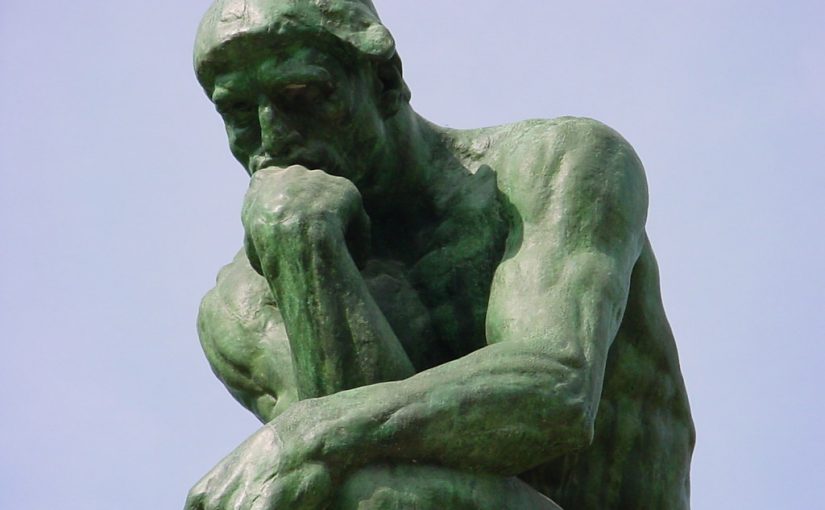A homily for the Seventeenth Sunday in Ordinary Time, July 26, 2020
1 Kgs 3:5, 7-12, Rom 8:28-30, Mt 13:44-52
Have you ever asked for something? Asked Mom or Dad or Uncle Mike or Santa Claus or the Easter Bunny?
Did you get it? After you got it, was it really what you wanted? And even if you thought it was, did you get tired of it after a while? Or, after a long while, did you realize that, no, it really wasn’t what you wanted after all?
Human nature is like that. We ask for things we want more often than we ask for things we need. We have an entire economy built around that (which is the subject of at least two more homilies, but not today). Since the end of World War II — yes, that long — we Americans have been programmed to want more-bigger-better-shinier-new-and-newer. We engineered the middle class that way. We raised the standard of living for some — but not all — Americans that way.
Black Friday became a de facto holiday.
In the Jim Carrey movie “Bruce Almighty,” Carrey’s character gets to take over God’s powers — and responsibilities. Like answering prayers. At one point, the requests from just the citizens of Buffalo alone overwhelm him, so Carrey as Bruce grants all of them.
All. Of. Them.
Suddenly, everyone has won the lottery. Everyone is prom king and queen. Everyone is everything, has everything they ever thought they wanted.
Which means nobody is or has.
The lottery jackpot is a buck or two, and not millions. Nobody goes to the prom. Everybody is the supervisor, so there’s nobody to supervise. In short, everything that was supposed to be special loses its luster.
Saying yes to everything is never a wise move, it turns out. Which is why God doesn’t.
Every time any of us asks for something, especially if we ask Almighty God, we may run the risk of asking for something that will be denied to somebody else if we get it. Action-reaction. A ripple that becomes a wave. The Law of Unintended Consequences.
Forget Mr. Murphy. U.C.’s Law has a far greater impact. And while it’s not possible to plan for Murphy’s Law, we can plan for U.C.’s if we step back, take a breath, and think of Solomon.
If we tailor what we seek to have the least impact on anybody else’s lives, our personal requests may deserve Yes as the answer. Even if we’re asking for something we want more than we absolutely need.
Our passage from the Book of Kings today is a wonderful glimpse into the Mind of God, into the wisdom that at first seems enigmatic and impenetrable but then spreads through everything like drops of green coloring in a glass of water.
Solomon starts by thanking God — as we should — for all the gifts he received through the accident of his being born the son of King David. He recognizes and acknowledges his silver spoon and also recognizes and acknowledges his youth and inexperience.
So already he’s showing wisdom.
And because of his wisdom, he asks for wisdom.
 He asks for wisdom because it will benefit his people. He asks for the power to see into hearts, to distinguish between love for all and love only for self, to root out the selfish and elevate those who care for others.
He asks for wisdom because it will benefit his people. He asks for the power to see into hearts, to distinguish between love for all and love only for self, to root out the selfish and elevate those who care for others.
By being truly altruistic, and by valuing altruism in others, Solomon is rewarded with not only wisdom but earthly riches and power. Such a deal.
But even though Solomon could have put up his feet, snapped his fingers and demanded to be fed grapes while being fanned by servants — because, hey, he’s The King — Solomon instead used these gifts to benefit his people, as he said he would. As God hoped Solomon would.
Right after this passage in Kings comes the well-known tale of the two women claiming to be the same living baby’s mother, after the child of one of them dies and that baby’s mother switches the children. By jumping right in with this recounting of a Solomonic decision, the Book of Kings points out that Solomon wasted no time using his gifts.
We, too, possess wisdom, even if on some days we’re not sure about that. Any decision we make, any action we take after thoughtful, prayerful, love-filled deliberation is guided by wisdom. It’s wisdom that comes from the Holy Spirit, because our Advocate, our Sustainer nudges us toward the right decisions.
The caveat, of course, is that we must ask for this wisdom that guides us in the spirit of charity.
Our COVID-19 lockdowns have put massive stress on wisdom and charity within our lives. It’s hard to think of others first when they’re out of sight, out of mind, and when the only things in clear sight are economic uncertainty and imperiled health.
But the tiny silver lining in these extraordinary times is that life indeed has slowed, giving us time to think things through, to reorder priorities, to simplify the list of things we value. To ensure that when we do ask for a gift, it’s a good ask.
Wisdom was God’s gift to Solomon, and look at everything he did with it.
Wisdom is God’s gift to us. Hmmm. …
… about that weird headline/title
My beloved butt-cheek-pinching Nana Zapcic subscribed to two … uh … newspapers: the now-online-only Weekly World News, the onetime black-and-white supermarket tabloid that routinely had aliens infiltrating the White House, and Grit, then a corny/folksy collection of homespun articles, recipes, jokes and MoCA-style brain teasers, and now more or less the same in magazine form.
The one teaser from Grit I remember went like this:
I I U R, I I U B, I C U R I I 4 me
Too wise you are, too wise you be, I see you are too wise for me.
Please forgive me.

Thank you again Bill. I enjoy your weekly homilies. They are easy to follow and get right to the point. Continue doing what you do so well.
It’s my honor and pleasure.